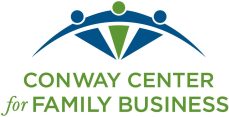For many of us, estate planning is something we know we should do but often manage to postpone until some indefinite time in the future. But, putting off this part of your financial life could mean passing over an opportunity to preserve the lifestyle you’ve worked so hard to create and to dictate your legacy on your terms.
Why You Need an Estate Plan
The primary purpose of estate planning is to ensure that you control how your assets are distributed. Estate planning is also about planning for unexpected events, such as physical and mental impairment, which may place financial strain on your family.
A well-crafted estate plan is likely to have multiple goals:
- To protect your lifestyle
- To provide for your family and others, including charitable organizations that are meaningful to you
- To control distribution of your assets
- To minimize estate taxes
Your Estate Planning Checklist
Depending on your goals, you may need to consider different tools, resources and strategies to help you develop an estate plan that reflects your priorities. Here are some important documents and services you may need to help protect you and your family in the event of disability:
- A living will is a legal document containing your wishes regarding medical measures that might be taken to prolong your life in case of serious illness or injury.
- A durable power of attorney for healthcare, also known as a healthcare proxy, appoints someone you trust to make healthcare decisions on your behalf if you are unable to do so.
- A durable power of attorney for financial matters gives someone legal authority to make financial decisions if you are unable to do so.
- An inventory of important information includes information about your property, bank accounts, insurance policies, employee benefit plans, mortgages and debts. It also includes your estate planning documents and beneficiary designation forms.
- Disability insurance replaces a portion of lost income if illness or injury prevents you from working.
- Long-term care insurance protects against the costs associated with disabilities caused by age and infirmity, such as nursing home care.
Other important documents help to protect your family and your legacy in the event of your death:
- Life insurance provides financial benefits for your loved ones if you pass away. Used strategically, life insurance can also help address your other estate planning objectives, such as reducing the impact of estate taxes.
- A will is a state-specific legal document that sets forth your wishes regarding the distribution of your property and the care of any minor children.
- Trusts may be beneficial for a variety of life events and situations, including tax law changes, marriage, collage saving, a child with special needs, serious illness, inheritance and retirement planning.
The most difficult part of estate planning is getting started. Once you begin, you will find estate planning is a positive and constructive way to put yourself in control of your legacy.
Need help taking the first step? Working with a Financial Advisor can help you bring all the elements of your estate plan together to help ensure that you have an integrated strategy in place to protect yourself and your family.
—
Disclosures
Article by Morgan Stanley and provided courtesy of Michael Beers, Morgan Stanley Financial Advisor.
If you’d like to learn more, please contact: 
The Fortis Group at Morgan Stanley
Michael L. Beers
Senior Vice President
Financial Advisor
Corporate Retirement Director
4449 Easton Way, Suite 300
Columbus, OH 43212
(P) 614.269.3401
(E) fortiswm@morganstanley.com
(W) fa.morganstanley.com/fortis
—
Life insurance, disability income insurance, and long-term care insurance are offered through Morgan Stanley Smith Barney LLC’s licensed insurance agency affiliates.
Not all products and services discussed are available at Morgan Stanley.
Morgan Stanley Smith Barney LLC (“Morgan Stanley”), its affiliates and Morgan Stanley Financial Advisors and Private Wealth Advisors do not provide tax or legal advice. Clients should consult their tax advisor for matters involving taxation and tax planning and their attorney for matters involving trust and estate planning and other legal matters.
This article has been prepared for informational purposes only. The information and data in the article has been obtained from sources outside of Morgan Stanley. Morgan Stanley makes no representations or guarantees as to the accuracy or completeness of the information or data from sources outside of Morgan Stanley. It does not provide individually tailored investment advice and has been prepared without regard to the individual financial circumstances and objectives of persons who receive it. The strategies and/or investments discussed in this article may not be suitable for all investors. Morgan Stanley recommends that investors independently evaluate particular investments and strategies, and encourages investors to seek the advice of a Financial Advisor. The appropriateness of a particular investment or strategy will depend on an investor’s individual circumstances and objectives.
Michael L. Beers may only transact business, follow-up with individualized responses, or render personalized investment advice for compensation, in states where he is registered or excluded or exempted from registration, fa.morganstanley.com/fortis.
(C) 2018 Morgan Stanley Smith Barney LLC. Member SIPC. CRC 2159759 07/2018

